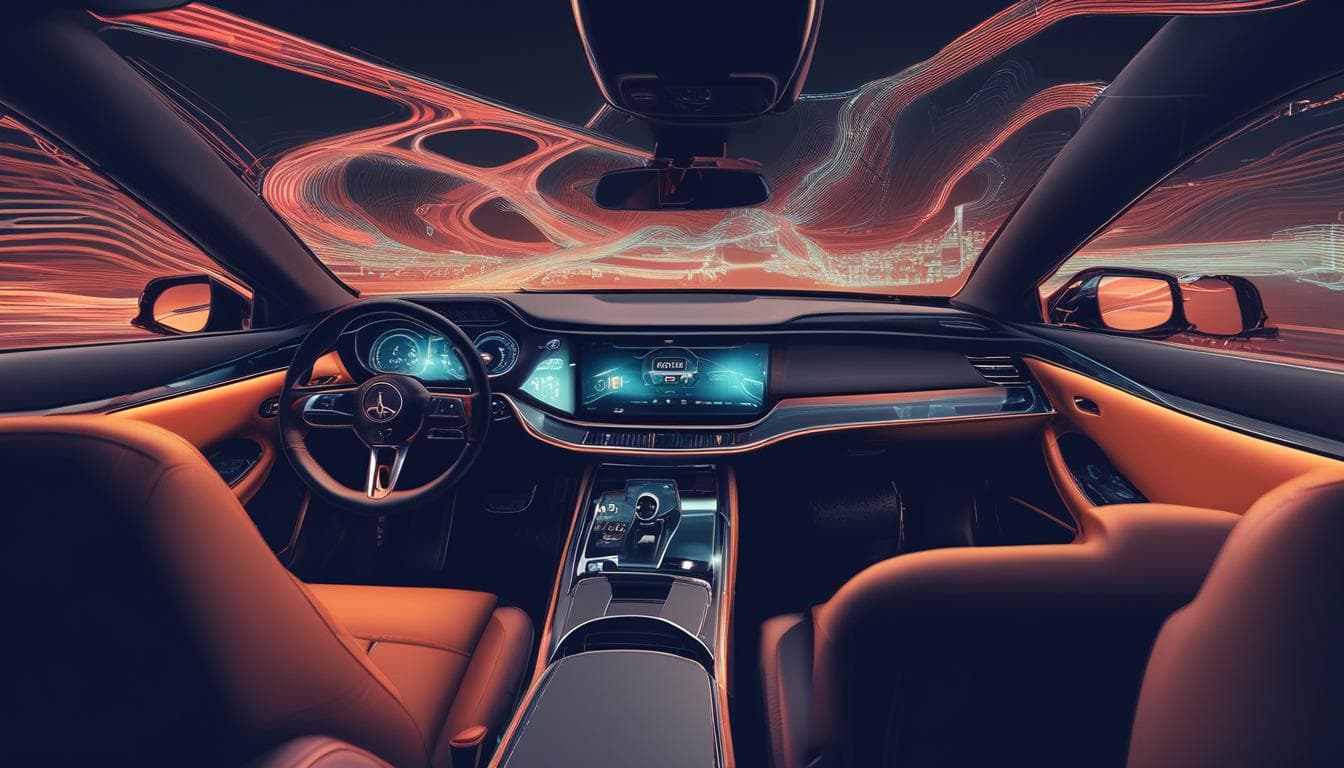With the increasing sophistication of AI in vehicles, how do you envision the future of in-car emotional support systems? Could AI companions alleviate stress, boredom, or loneliness on long journeys, or even act as co-pilots for anxious drivers? What are the potential benefits and drawbacks of such a deeply integrated emotional connection between humans and their cars?
The concept of AI-powered in-car emotional support systems is quite fascinating and promises to revolutionize how we interact with our vehicles. Here's a breakdown of what the future could hold for these AI companions:
Potential Benefits
- Stress Reduction: AI companions could use biometric data (like heart rate or voice tone) to gauge your emotional state. If stress levels rise, they could initiate calming exercises, play soothing music, or even suggest a break, tailoring responses to individual needs.
- Enhancing Focus: For anxious drivers, AI systems could remind them of driving best practices or provide reassurance and guidance, ultimately enhancing their concentration and safety on the road.
- Entertainment and Engagement: These systems could provide interactive entertainment options, such as games, audiobooks, or trivia, reducing boredom during long trips and keeping the driver alert and engaged.
- Loneliness Mitigation: With advanced conversational AI, these companions may offer an engaging interaction, easing the feeling of solitude, especially for those who often travel alone.
Potential Drawbacks
- Privacy Concerns: Constant monitoring of emotional states and personal interactions could raise significant privacy issues. It's crucial to ensure data is securely handled and user consent is prioritized.
- Dependence: Heavy reliance on virtual companions might reduce human interactions, potentially leading to social isolation outside the vehicle context.
- Complexity vs. Usability: Ensuring these systems remain intuitive and user-friendly is key. Overcomplicated interfaces might detract from their intended supportive role.
Future Considerations
- Data Security: Developing robust data protection frameworks should be a priority, ensuring all personal and emotional data collected by AI systems are kept secure.
- Customization: Allowing users to tailor their AI companion's personality and functionalities could enhance user experience, making the interaction more personal and meaningful.
- Ethical Use: Setting clear ethical guidelines for the deployment and use of such technology can prevent misuse and ensure it remains beneficial.
In conclusion, while AI companions in cars could bring significant benefits in terms of emotional support, their development must be approached with careful consideration of privacy, ethical standards, and user-centric design to truly revolutionize the driving experience.
Explore More on This Topic
Join the Conversation
- The Future of Road Trips: AI-Powered Itineraries vs. Spontaneity
Explore the evolving landscape of road trips in the age of AI. Will curated itineraries replace spontaneous adventures, or will there be a balance? Discuss the potential impact of AI on the driver and passenger experience.
- The Future of Automotive Artistry: Will AI Drive Design or Compete With It?
Explore the future of automotive artistry in the age of AI. Will AI become a collaborative tool for car designers, a new medium for artistic expression, or a competitor creating its own automotive aesthetics? Join the discussion and share your vision.
- Beyond Electric: Exploring Alternative Fuels for Future Cars
Dive into the future of automotive fuels beyond electric batteries. Explore the potential of hydrogen, biofuels, solar, and more. Discuss the pros, cons, and their role in shaping transportation.





